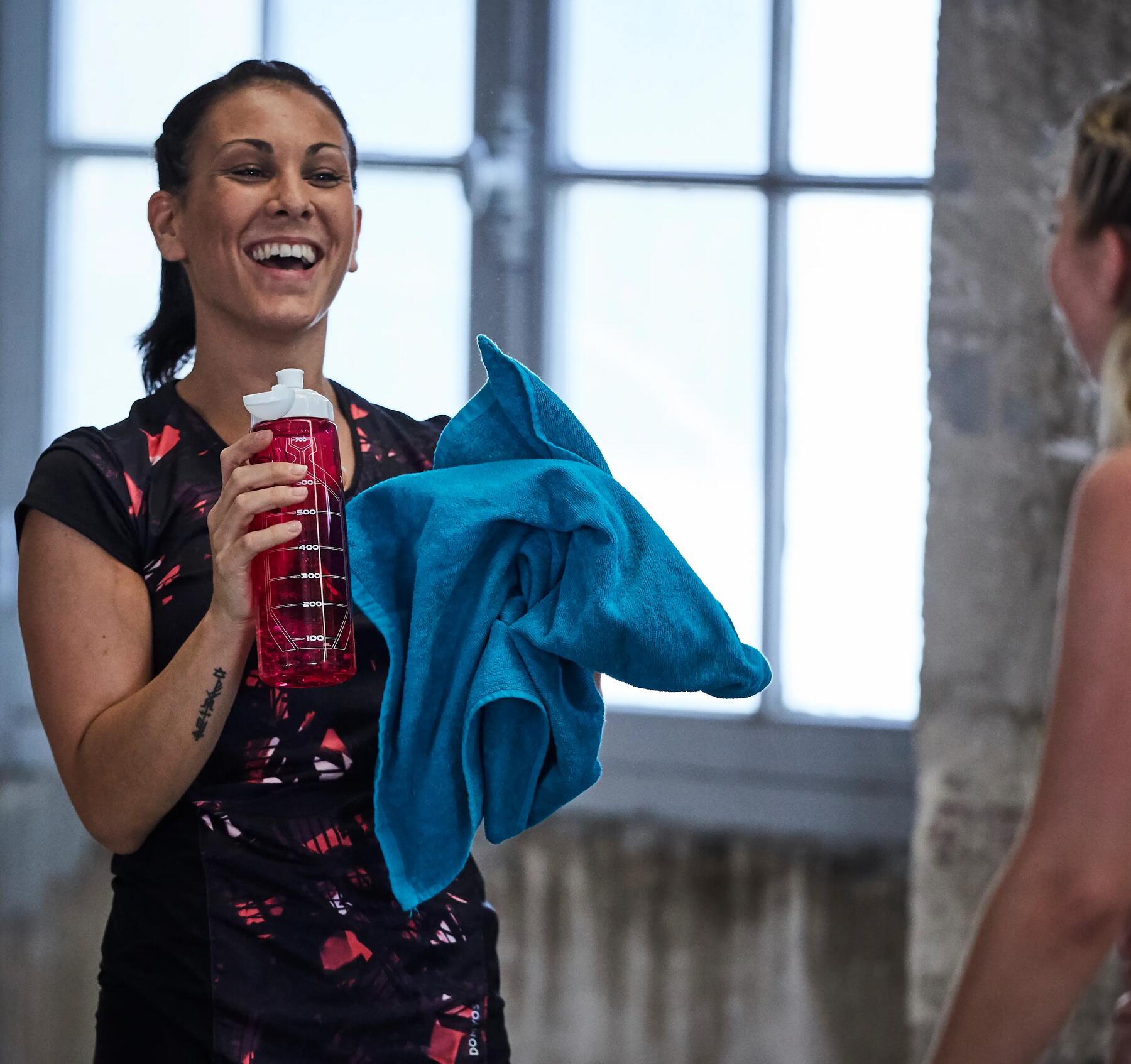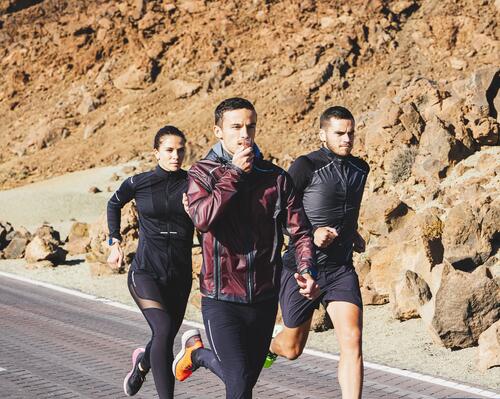Why is hydration so important?
On average, the human body is made up of 65% water. Since our bodies can't store water, it is important to balance losses by supplying more water.
- Water losses are connected to perspiration, urine, and breathing
- Water is supplied by food and beverages
You should regularly maintain your water supply throughout the day. It depends on the type of cardio workout, its length, and the temperature (heated or air conditioned gym).




